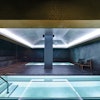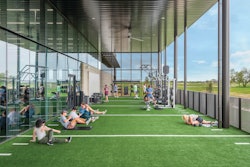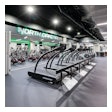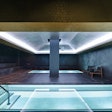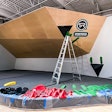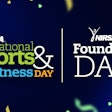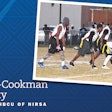Copyright 2018 Charleston Newspapers
Charleston Gazette-Mail
State lawmakers and the governor approved earlier this year legislation that, on its face, qualifies a prior state felony law ban on having "a firearm or other deadly weapon ... at a school-sponsored function.
But language in a court ruling suggests the legislation may also lift blanket bans on concealed guns in municipal recreation centers, if the state constitution isn't interpreted to maintain the bans. And the same gun rights group that sued Charleston over the city not allowing guns in rec centers told lawmakers to nix proposed changes to the legislation that would have more clearly and widely banned guns from recreation facilities.
Lawmakers complied. The votes on the final version of the legislation (Senate Bill 244) were 33-1 in the Senate and 86-12 in the House of Delegates.
Charleston Mayor Danny Jones Friday expressed resignation toward the change, saying, "I think they've got us, unless some other person or entity sues to maintain the rec center bans. But City Attorney Paul Ellis said the city plans to keep the blanket bans going in some rec centers while working with the Kanawha County school system on a path forward.
SB 244 added following "school-sponsored function the words "that is taking place in a specific area that is owned, rented, or leased by the West Virginia Department of Education, the West Virginia Secondary Schools Activities Commission, a county school board, or local public school for the actual period of time the function is occurring.
The new language perhaps lifts the ban in places that host such functions without some official use agreement (like a rental agreement) with a county school board or another of those entities.
Conversely, the legislation also possibly expands the definition of "school-sponsored, and thus the ban's scope, by including sponsorship from the education department and the WVSSAC, which aren't actually schools.
The added phrases regarding "specific area and "actual period of time the function is occurring may seem redundant of the prior law. Even in the prior law, shouldn't the word "function have regardless been read as meaning that the ban, like any function, would only occur at a certain point or span in time and space?
But in September, in the litigation with the gun rights group, now-retired Kanawha Circuit Court Judge James Stucky ruled on the prior law's specific impact on "municipal recreation centers.
State law says towns and cities can ban guns in their rec centers, except for concealed guns carried by people with permits for them.
But Stucky's ruling stated that, even if a city doesn't pass an ordinance saying so, "anytime the Board of Education leases a municipal recreation center for the operation of school sponsored events, activities or functions, that building is considered an (sic) public educational facility, building and grounds and all guns are banned there.
"This prohibition of firearms in these leased and used municipal buildings shall extend permanently, at all times and not just the times the functions or activities are taking place, so long as the Board of Education has a valid lease or right of possession of such facility, Stucky's ruling continued.
"The Legislature found that the safety and well-being of our children and the employees undertaking the task to educate and supervise our children is of the upmost importance and demands full protection from firearms. To hold or limit the prohibition to only the times when activities are ongoing will produce an unworkable standard for society to follow, therefore a blanket prohibition is necessary and vital to preserve the intent and purpose of the Legislature.
House Judiciary Committee Chairman John Shott, R-Mercer, said SB 244, which changed part of the law Stucky cited, would "effectively trump that ruling.
"The need for a clarification arises out of a recent local court decision, in which it appears that the ban on possession of a handgun or firearm in an area where the school system is conducting an event basically extends to the entire facility, Shott said. "If the school system were having a dance at the Marriott in the ballroom, the decision basically would extend the ban throughout the entire hotel, and some interpretation of the decision would indicate that that would continue indefinitely.
David Frercks said he wrote the portion of the legislation at issue. He said that years ago he was a member of the West Virginia Citizens Defense League, which launched a lawsuit against Charleston in 2013 to try to overturn gun bans, but in pushing the legislation he said he was "acting solely of my accord.
Frercks said he was aware of Stucky's ruling when he wrote the legislation. But Frercks said he didn't do so to overrule Stucky's ruling, but rather to fix what he saw as a pre-existing problem in the law.
"The reason I wrote the bill is because if a church were to [unofficially] loan its property to a local school as a good community partner, then - while the school-sponsored function was going on - if the [concealed-carrying] individual came to the church for church business, then the unintended consequence of state code would make that individual a felon, Frercks said.
The penalty is two to 10 years in prison, or a fine of no more than $5,000, or both.
Frercks said he wanted there to have to be a more official agreement, like a rental agreement, in place for the ban to be in effect.
He said a "school-sponsored function could have been at any public place in the prior law - perhaps a restaurant that was a scheduled stop on a field trip's agenda. Someone carrying a gun in that restaurant could be at risk of a felony, he said.
He also said a function could be taking place in just one portion of a property, but the ban could have affected the entire location.
Frercks did suggest Stucky's ruling could have exacerbated his pre-existing issues, especially if it were interpreted to apply to properties beyond rec centers.
"If a church loaned its building to a school once during the school year, then for the remainder of the 364 days after that date the church could be considered school property, Frercks said.
Stucky's ruling didn't specify how often a rec center would have to host "school-sponsored functions for the blanket ban to be in effect, though it does at one point reference "certain municipal recreation centers. Ellis, Charleston's attorney, said Stucky's blanket ban was clearly meant to apply just to rec centers that regularly host school functions.
Ellis said he considers the Kanawha City, Martin Luther King Jr., North Charleston and Roosevelt rec centers to be covered by the blanket ban (even with SB 244), but he left the door open for others, including Cato Park. He said at least at the rec centers, school functions are so frequent it's hard to demarcate when they occur or don't, and "it's just not possible to manage.
"I mean, this is absurd, Ellis said.
Citizens Defense League President Keith Morgan, who declined comment for this article, did email lawmakers March 6 on the legislation.
Shott's committee had recommended changes that included specifically saying guns are banned at municipally owned rec facilities at all times (even if they hosted no "school-sponsored functions ) and adding "or utilized after "leased to the line banning guns at "a school-sponsored function that is taking place in a specific area that is owned, rented, or leased by the [various entities].
"What started out as a good bill has been turned into a gun control bill, Morgan wrote. He wrote that unless the two changes were rejected, "a yes' vote will be scored quite negatively.
Two days later, the full House withdrew the committee's recommended changes in a voice vote.
But Stucky didn't only cite state code in his ruling. He referenced an unchanged source higher than that: the state Constitution.
He wrote the Supreme Court "has held that implicit within the West Virginia constitutional guarantee of a thorough and efficient system of free schools' is the need for a safe and secure school environment.
Stucky then wrote that, to secure that constitutional guarantee, "the Court must develop a manageable standard. ... The only manageable standard is to bar firearms completely and at all times if such programs are conducted at certain municipal recreation centers.
In a letter to Mayor Jones, Sean McGinley, who represented Charleston in the gun litigation, suggested constitutional issues with SB 244.
"This change in the law creates considerably more ambiguity for gun owners who previously knew they could not have guns at any school sponsored activity, but now would be charged with knowing who owns or rents or leases the property where the school sponsored activity occurs, McGinley wrote.
"So even for gun owners themselves, this change in the previously clear law makes it precisely the kind of unmanageable, unworkable standard that Judge Stucky already determined would violate the West Virginia Constitution's implicit guarantee of safe and secure schools.
Read More of Today's AB Headlines
Subscribe to Our Daily E-Newsletter
Terms and Conditions Privacy Policy










